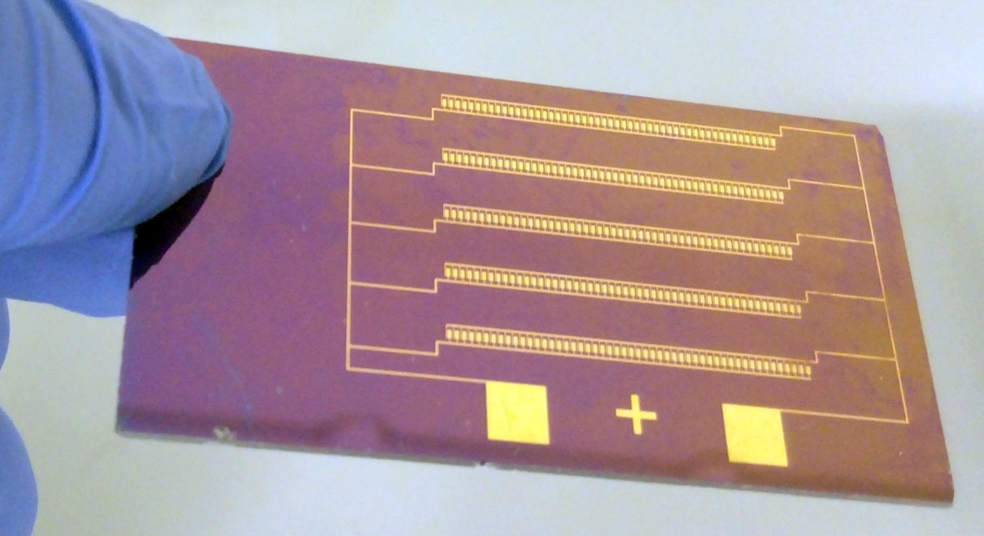
Breast cancer metastasis, or the spread of cancer to other body tissues and organs, is a leading cause of cancer-related mortality. Currently, metastasis is detected from clinical symptoms, biopsies, imaging methods and blood tests. However, these are limited in their sensitivity to detect the earliest signs of cancer spread.
NBCF-funded researcher Professor Matt Trau, from the University of Queensland, hopes to improve the detection of early metastasis with a new highly sensitive blood test, called a SERS immunoassay. The test consists of a microfluidic chip with a series of wells, into which a small blood sample is placed. Then, using specialised nanoparticles, the test will detect proteins in the blood that reveal signs of metastasis.

Microfluidic chip used for the SERS immunoassay, a new test to detect early potential signs of metastasis in the blood. Image supplied by Professor Matt Trau.
The test exploits a stage of cancer development called “epithelial-to-mesenchymal transition” (EMT). EMT is one of the major initial processes that allows cancer cells to gain properties which help them to spread. During EMT, proteins on the cancer cell surface change and are released into the bloodstream. By detecting these protein fragments within the blood, scientists can detect early potential signs of metastasis. This may allow rapid clinical intervention and improves the prognosis for the patient.
In his recent research, published in the peer-reviewed journal Small, Professor Trau and his team showed that the SERS immunoassay could detect EMT in breast cancer cell models. Moreover, to demonstrate the clinical potential of the new test, the team used the SERS immunoassay to analyse blood samples from both advanced breast cancer patients and healthy individuals. Importantly, the test was positive for breast cancer patients but negative for the healthy individuals.
“Although further clinical and scientific study is needed before the new test can be used in routine patient care, the results indicate that the SERS immunoassay could be potentially applied to monitor EMT in breast cancer,” said Professor Trau. “Hence, the new test may help to facilitate early identification and clinical management of breast cancer metastasis.”
NBCF is proud to have supported the funding of this project.
More News Articles
View all News


